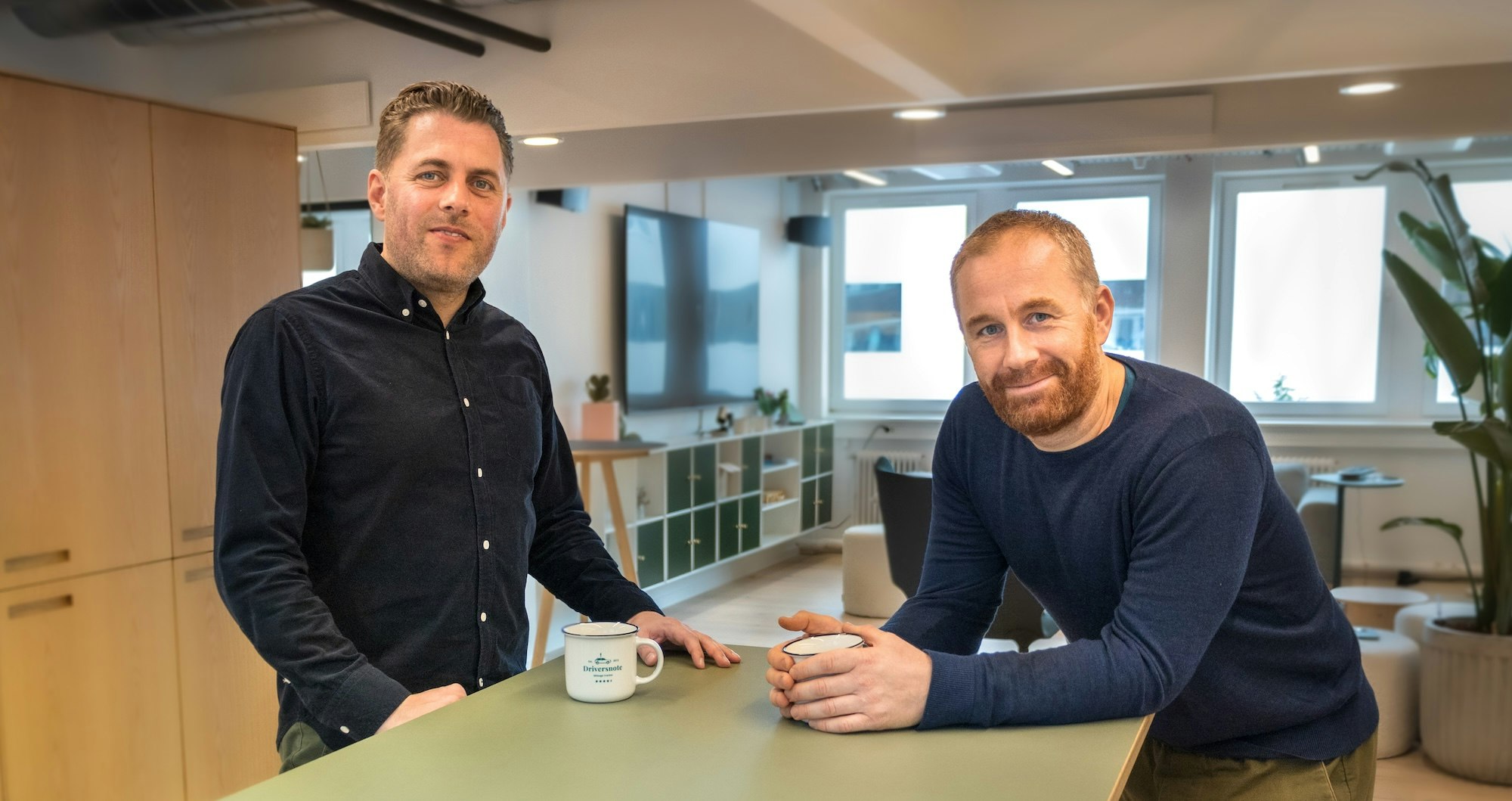With VCs continuing to throw money at GenAI startups, it’s strange to see any of them turning down easy money.
But investment almost always comes with strings attached, as well as dilution, and some are less happy to accept these conditions than others.
“At some point, you might have to raise money because everyone else is,” says Lasse Finderup, CEO and cofounder of the AI transcription tool Good Tape.
Sifted picked six profitable startups founded in 2022 or earlier across Finland, Sweden, and Denmark that decided VC wasn’t for them — at least not for now.
Good Tape, Copenhagen
Good Tape specialises in AI-powered speech-to-text transcription and was created out of the new Danish media house Zetland originally focused on journalists and has then expanded its user base to include researchers, consultants, lawyers, and health professionals.
In the interests of protecting confidential information, the company’s AI doesn’t use the customer’s transcription files for AI learning of any kind, unlike its competitors.
Founded: Late 2022 by Lasse Finderup, Tav Klitgaard and Jakob Steinn
Current ARR: $2.9m, reported €130k in profits in 2024
Employees: 9
Finderup and his team decided not to raise VC money early on. Benefiting from an almost immediate product-market fit, they decided to stay bootstrapped.
“We’ve had a few inbound requests from investors and one of the largest Danish VCs reached out to me on LinkedIn — but we didn’t need the money. In the first month when we launched, we got 1,500 paying customers and around 13k users, and it just basically kept going,” Finderup says.
However, from being sure about staying bootstrapped 16 months ago, Finderup has started to waver in his belief.
When other AI startups are raising large sums enabling them to pursue hypergrowth, what will happen to Good Tape if they don’t raise venture capital?
“We could definitely keep growing like we are now with debt funding. But if you really believe that this is a market where everyone is running really fast, then you sort of have to try and keep up the pace to not get left behind,” he says.
Driversnote, Copenhagen

Driversnote is an app that automatically tracks mileage for those using their personal cars for work, simplifying reimbursements and tax deductions by generating detailed logs without manual entry.
Founded: 2013 by Martin Poulsen and Jonas Åradsson
Current ARR: €12.5m with €3.2m in profits in 2024
Employees: 31
When Driversnote launched in 2016, the founders engaged with investors and fully considered venture capital, however, disagreements over valuation prevented a deal.
“We couldn’t get ourselves to hand over a piece of the company for the valuation that they were willing to give,” Åradsson says.
Instead, the company borrowed DKK 2m from the Danish Growth Fund (then Vækstfonden) with a desire to recruit a number of people to accelerate their growth. However, despite this initial plan, they didn’t find the right people quickly enough.
“We paid a lot of interest on that loan for a year and paid back the money a year later because we couldn’t spend it,” he says.
Since then, the company has stayed away from venture capital and debt. And while many founders see VC as the only path to success, Åradsson disagrees.
“It’s a very risky road to go down,” he says. “You may even end up losing your company.”
Guestit, Stockholm
A platform for short term rentals (”STR”) in the Nordics. Guestit partners with property owners to rent out homes for 2-90 days. It operates around 1,000 units in Stockholm, Gothenburg and the ski resort Åre.
Founded: 2017 by Olof Kernell, Elias Högmark and Fredrik Hjelm (also cofounder of micromobility scaleup Voi)
Latest revenue: €11m reported in 2023/2024 report with €17k in profits
Employees: 30
Guestit was bootstrapped from the start, with a focus on covering its own costs through steady cash flow. Investments in technology and operations have been funded directly from revenue.
Recently, the company has increased spending on its own platform, guestit.se, and software to improve guest and property-owner satisfaction. While this lean approach may have slowed growth, it has built long-term resilience and efficiency.
“As our platform matures, we’re stepping up efforts to acquire leading regional host companies and integrate them into our way of working (WoW). To support this strategy, we’re primarily seeking debt financing, though equity could also be of interest”, says Kernell, CEO of Guestit.
Mevisio, Stockholm
Mevisio is a cloud-based platform used by manufacturing companies to support data visualization and communication. Built with a low-code framework, it helps organisations digitise and visualise workflows. The platform is used in over 70 countries. The company is in the process of raising external capital.
Founded: 2016 by Marcus Wejderot and Mats Ljungqvist
Current ARR: €2.7m and reported more than SEK 2m (€180k) profit in 2023.
Employees: 25
Toughbyte, Helsinki
Toughbyte is a recruitment platform focused on technical talent. By combining its platform with a distributed team of recruiters, it mixes automation with a personalised service to candidates and companies, according to the company.
The company has not raised any external capital since it has not needed it to grow, says Podsechin and adds that it isn’t planning to raise any in the near future either.
Founded: 2015 by Oleg Podsechin and Anton Korenyushkin
Current ARR: €1.8m with profits of 10%
Employees: 30 according to Linkedin
HeiTech, Helsinki
Hei Tech is a remote-first startup with headquarters in Helsinki, and offices in the US and Vietnam. It has developed an AI dubbing and AI text-to-speech service to make it easier for content creators and in-house teams to edit videos faster and better.
The company is bootstrapped but is considering raising capital in the future.
Founded: 2022 by Thai Tran
Current ARR: €220k with €131k in profits
Read the orginal article: https://sifted.eu/articles/six-bootstrapped-nordic-startups-to-watch/


